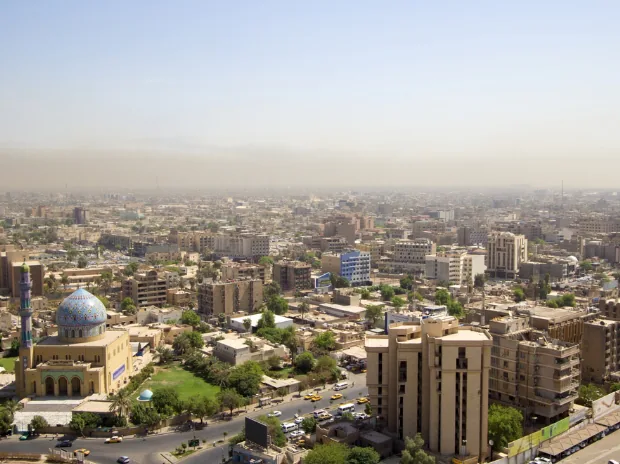Iraq’s new parliament held its first session on Sunday, nearly three months after Iraqis voted in a general election whose results have been contested by powerful Iran-backed factions.

The meeting ushers in what is likely to be a lengthy period of political wrangling among rival groups to choose a new president and prime minister.
As leader of the biggest bloc, Shiite cleric Muqtada al-Sadr a maverick leader remembered for leading an insurgency against U.S. forces after the 2003 invasion has the upper hand in choosing the new prime minister.
But he will have to manage tensions with rival Shiite groups who continue to reject the election results and are demanding to have a say in the government formation process.
Lawmakers from al-Sadr’s bloc arrived early to the parliament building in Baghdad, donning white shrouds Muslims use to wrap their dead in a sign of their willingness to die for him. Al-Sadr, one of Iraq’s most influential political leaders, was the biggest winner in the Oct. 10 vote, securing 73 out of Parliament’s 329 seats.
Pro-Iran factions that alleged voter fraud lost around two-thirds of their seats a significant blow. Supporters of armed groups pitched tents and staged a sit-in around the capital’s so-called Green Zone, which houses the Iraqi government and many foreign diplomatic missions, for more than two months, while they appealed Iraq’s top court.
Tensions culminated in November with an assassination attempt with armed drones against Prime Minister Mustafa al-Kadhimi’s residence an attack blamed on Iran-aligned groups. The premier was unharmed.
The Court rejected the appeal filed by Iran-backed factions and ratified the election results late last month, clearing the way for a government to be formed.
Lawmakers on Sunday are expected to elect a parliamentary speaker and two deputies. Parliament will then have to elect a new president, who in turn will have 15 days to appoint a prime minister nominated by the largest bloc to form a new government.
Under an unofficial agreement dating back to the 2003 U.S.-led invasion, Iraq’s presidency a largely ceremonial role is held by a Kurd, while the prime minister is Shiite and the parliament speaker is Sunni.
The election was held months ahead of schedule in response to mass protests in late 2019, which saw tens of thousands in Baghdad and predominantly Shiite southern provinces rally against endemic corruption, poor services and unemployment. They also protested against the heavy-handed interference of neighbouring Iran in Iraq’s affairs through Iran-backed militias.
Independent candidates drawn from the October 2019 protest movement who ran under the Imtidad list won nine seats. Some of them arrived to the parliament building riding a tuk tuk from Tahrir square, the epicenter of the protest movement. The colorful three-wheeled motorcycle vehicles ferried demonstrators back and forth from the square and became a symbol of the protest movement.
Hamzeh Hadad, a political analyst, said the makeup of the new parliament could help make elected officials more accountable to the public due to the new smaller electoral districts.
With many independents and new political parties elected like Imtidad Movement, we could see a true opposition formed in parliament for the first time, he said. This is what Iraqis will be hoping to see from the new legislature.
Support InfoStride News' Credible Journalism: Only credible journalism can guarantee a fair, accountable and transparent society, including democracy and government. It involves a lot of efforts and money. We need your support. Click here to Donate
